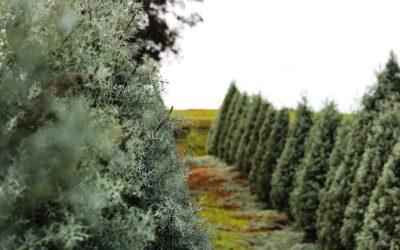For many families, choosing the perfect Christmas tree is a cherished holiday tradition that brings joy and a sense of togetherness. However, as our awareness of environmental issues and sustainability grows, so does the desire to make informed and responsible choices in all aspects of our lives, including the selection of a Christmas tree. Trees for Tuition, a not-for-profit organization that sells Christmas trees to provide tuition assistance programs for underprivileged students in Atlanta, is dedicated to meeting this demand by ensuring their trees are grown with a commitment to ecological sustainability and responsible stewardship.
In this blog post, we will explore the sustainable farming practices employed by Trees for Tuition and the many environmental benefits of choosing their responsibly grown Christmas trees. By diving into topics such as water conservation, integrated pest management, and soil health, we will provide a comprehensive understanding of the organization’s eco-conscious approach to tree farming and the significance of supporting their mission.
By choosing a Trees for Tuition Christmas tree, you are not only offering deserving students the chance for a quality education, but you are also contributing to the protection and preservation of our planet. As you celebrate the holiday season with a beautifully decorated tree in your home, take pride in knowing that your choice reflects values of sustainability, environmental responsibility, and a deep-rooted love for both the Earth and your fellow human beings.
Water Conservation: Preserving our Most Precious Resource
Trees for Tuition understands the importance of water conservation and adopts a variety of measures to minimize the environmental impact of their farming practices:
1. Efficient Irrigation: The organization employs modern irrigation techniques like drip irrigation systems that directly deliver water to the root systems of the trees. This method eliminates wasteful use of water and ensures that the trees receive the necessary moisture without depleting water resources.
2. Rainwater Harvesting: Trees for Tuition further demonstrates its commitment to sustainability by harvesting rainwater. Collecting and storing rainwater for irrigation purposes helps conserve water resources and reduces the demand on municipal water supplies.
Integrated Pest Management: Reducing the Need for Chemicals
Trees for Tuition embraces an integrated pest management approach to control pests and diseases, thereby limiting the use of chemical pesticides:
1. Beneficial Insects: The practice of introducing beneficial insects into the tree farms helps control harmful pests naturally. These beneficial insects prey on pests that could otherwise harm or destroy the trees, minimizing the need for harmful chemical treatments.
2. Preventative Measures: Trees for Tuition also focuses on proactive preventative measures, such as planting and pruning techniques that reduce the vulnerability of trees to pests and diseases. This approach reduces the overall reliance on chemical interventions.
Soil Health: Nourishing the Foundation of Sustainable Farming
Soil health is a critical aspect of sustainable farming practices, and Trees for Tuition actively works to preserve the vitality and fertility of their tree farm soil:
1. Soil Testing and Amendment: Regular soil testing allows the organization to identify and address any nutrient deficiencies, ensuring that their trees have access to the essential nutrients required for healthy growth.
2. Organic Fertilizers and Composting: Trees for Tuition incorporates organic fertilizers and compost into their soil management practices, bolstering the nutrient content of the soil while reducing dependence on synthetic fertilizers.
Reforestation Efforts: Sowing the Seeds of Tomorrow’s Trees
As part of the organization’s sustainability strategy, Trees for Tuition is dedicated to reforesting the land used for Christmas tree farming:
1. Tree Planting Programs: After each tree is harvested, Trees for Tuition plants at least one seedling to replace it. This practice helps maintain the balance of tree growth and ensures a constant supply of trees for future generations.
2. Support for Reforestation Organizations: Beyond their own reforestation efforts, Trees for Tuition partners with and supports other organizations dedicated to reforesting land and planting trees around the world.
The Interconnected Web of Sustainability and Education
Supporting Trees for Tuition’s eco-friendly farming practices has ripple effects that extend beyond environmental stewardship:
1. Educational Opportunities: By choosing a Trees for Tuition Christmas tree, you are investing not only in a healthier planet but also in the education of deserving students who may become the environmental leaders and advocates of tomorrow.
2. Community Empowerment: Your support of Trees for Tuition helps build a strong, environmentally conscious community in Atlanta that values sustainability and education, ultimately setting a positive example for other cities and communities to follow.
Conclusion
In today’s environmentally conscious world, making informed choices about the products we consume and support is more important than ever. By opting for a Trees for Tuition Christmas tree, grown through sustainable and eco-friendly farming practices, you are contributing to the preservation and protection of our planet while also helping provide crucial educational opportunities to deserving students in Atlanta.
Get into the holiday spirit and make a difference in someone’s life by purchasing a live Christmas tree from Trees for Tuition. Not only will you have a beautiful tree to decorate your home, but your purchase will also go towards funding tuition assistance programs for those in need. Join us in spreading joy and hope this holiday season with Trees for Tuition.




